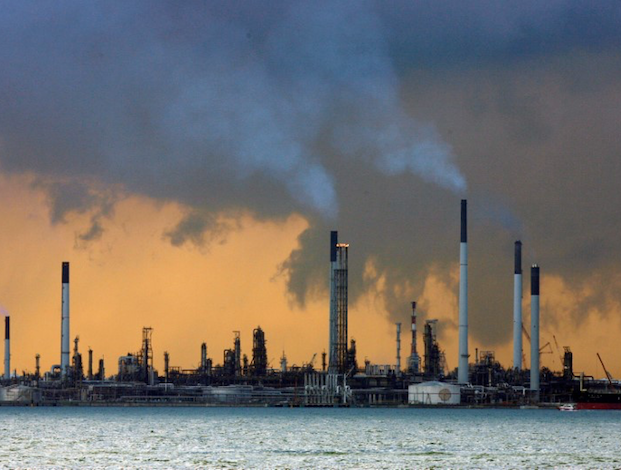

When a chemical facility shuts down, excess gases that cannot be processed are often flared, or burned. On August 24, as Hurricane Harvey gained force and approached the Texas coast (Box 1), dozens of refineries and chemical plants initiated shutdown procedures. In accordance with the ACC’s Responsible Care® program, all ACC members must have established emergency plans that are activated in coordination with local, state, and national authorities, as well as with other businesses and transportation systems in the path of the storm. Battening down the hatchesĪccording to the American Chemistry Council (ACC), emergency plans vary with storm severity but may include complete shutdown of the facility, evacuation of personnel, activation of generators, filling of tanks, physically securing equipment, and removal of unnecessary equipment and vehicles (, 2017). Therefore, as Hurricane Harvey approached the coastline in late August of 2017, many companies activated well-rehearsed emergency plans. Recent major storms include Tropical Storm Allison in 2001, Hurricanes Rita and Katrina in 2005, and Hurricane Ike in 2008.

The Gulf Coast is no stranger to tropical storms. Ethylene and its derivatives comprise about 40% of global chemical sales. Processing plants then convert the gaseous ethylene into polyethylene, the world’s most common plastic, and many other products such as ethylene oxide (used to produce surfactants and detergents), ethylene glycol (antifreeze), polyvinyl chloride (PVC used in pipe, windows, and bottles), and polystyrene (used for packaging and insulation). Ethylene is produced by heating natural gas in massive furnaces, or steam “crackers,” that break long-chain hydrocarbons into shorter molecules. Texas produces nearly 75% of the US supply and 15% of the world supply of ethylene, a basic chemical building block used to make everything from plastic containers to automobile parts to disposable diapers (Kaskey, J.,, 2017). Louisiana, another Gulf Coast state, is the fourth-largest producer of chemicals, with $51 billion in annual shipments. In particular, Texas is the largest chemical-producing state in the United States, with $129 billion in shipments annually (American Chemistry Council, 2017). More than 25% of US oil refinery capacity and 50% of the nation’s downstream chemical production are located in this region (Bomgardner, M. Also, the Gulf Coast offers deep-water ports, pipeline and storage networks, and a skilled refining workforce. The Gulf Coast, which encompasses US states that border the Gulf of Mexico, is the heart of the US oil refining and petrochemical industries, mainly because of its proximity to feedstock materials such as natural gas. Emergency plans are never considered “finished products,” but should be periodically reviewed and modified with lessons learned from previous disasters. No region is completely immune to disasters, whether hurricanes, tornadoes, earthquakes, wildfires, or terrorist attacks. Nevertheless, Hurricane Harvey has prompted many companies, in and out of the Gulf Coast, to rethink their emergency preparedness plans.

A few days later, Arkema employees ignited the remaining trailers in controlled burns so that workers could safely begin assessing damage to the rest of the plantĪrkema executives claim that they made extensive emergency plans in preparation for Hurricane Harvey, but nobody could have anticipated rainfall or flooding of that magnitude. However, in the wake of unprecedented rainfall and up to 6 feet (1.8 m) of floodwater, these precautions were not enough, and the refrigeration systems failed, triggering fiery explosions in two of the trailers.

Arkema employees quickly moved the flammable organic peroxides to nine semi-trailers, which they transported to higher ground and cooled with diesel-powered refrigerators. When the area received more than 40 inches (1 m) of rain from Hurricane Harvey, floodwaters cut off power to the original refrigeration system and swamped backup generators. The facility produced liquid organic peroxides, which must be refrigerated to prevent their decomposition and subsequent ignition. In the early morning hours of August 31, 2017, two explosions rocked the flooded Arkema chemical plant in Crosby, Texas, sending flames and a plume of black smoke high into the air.


 0 kommentar(er)
0 kommentar(er)
